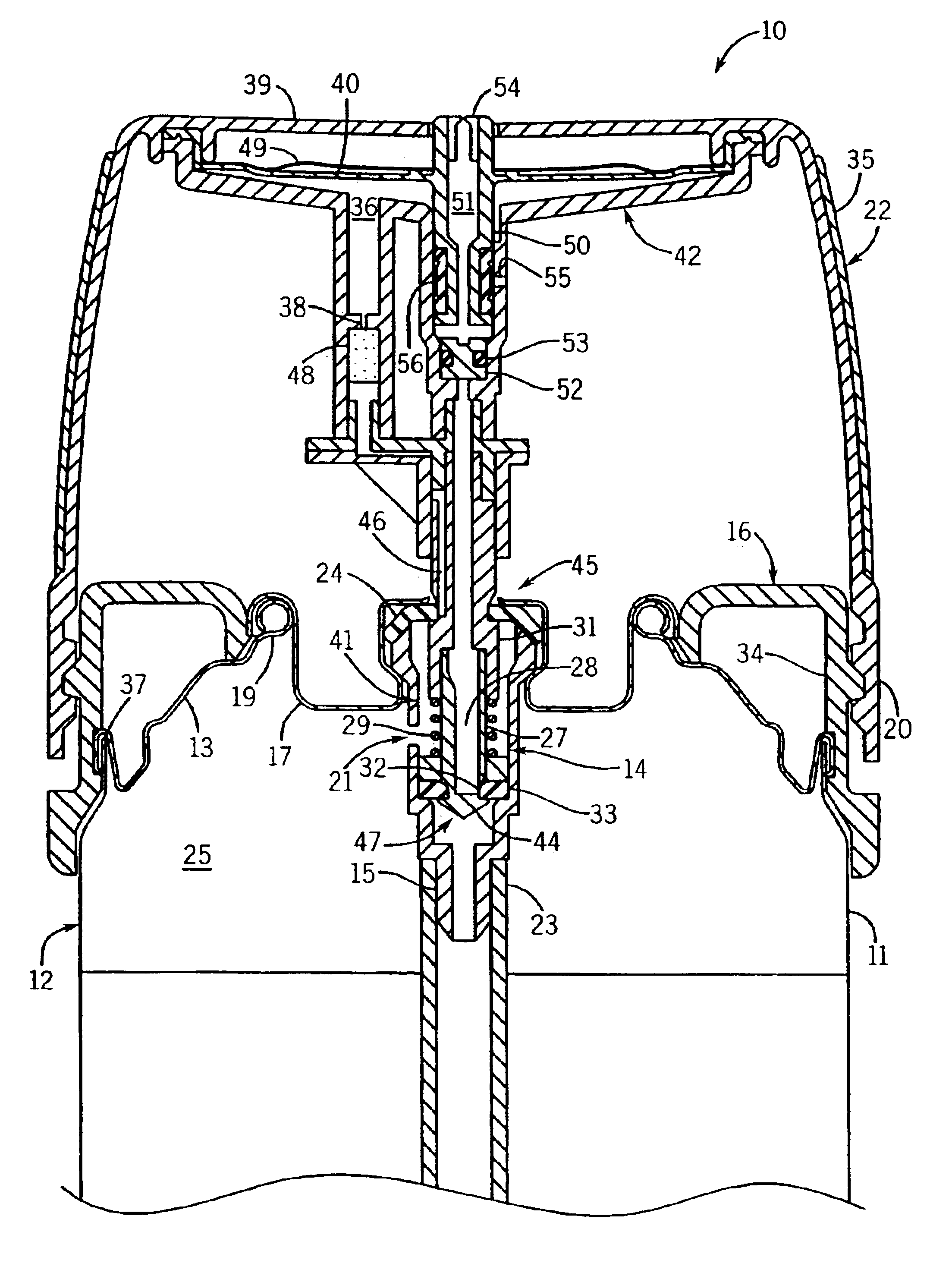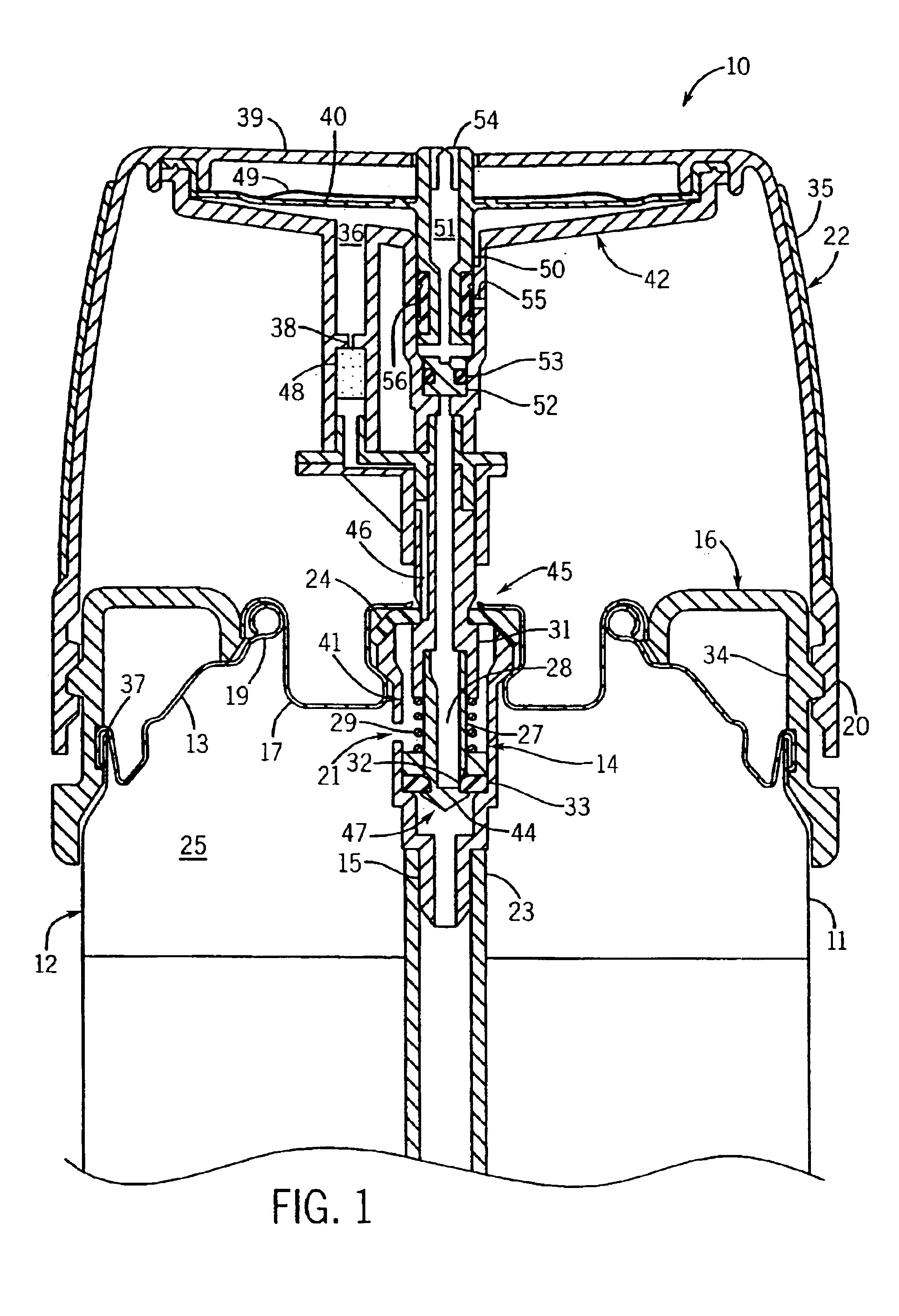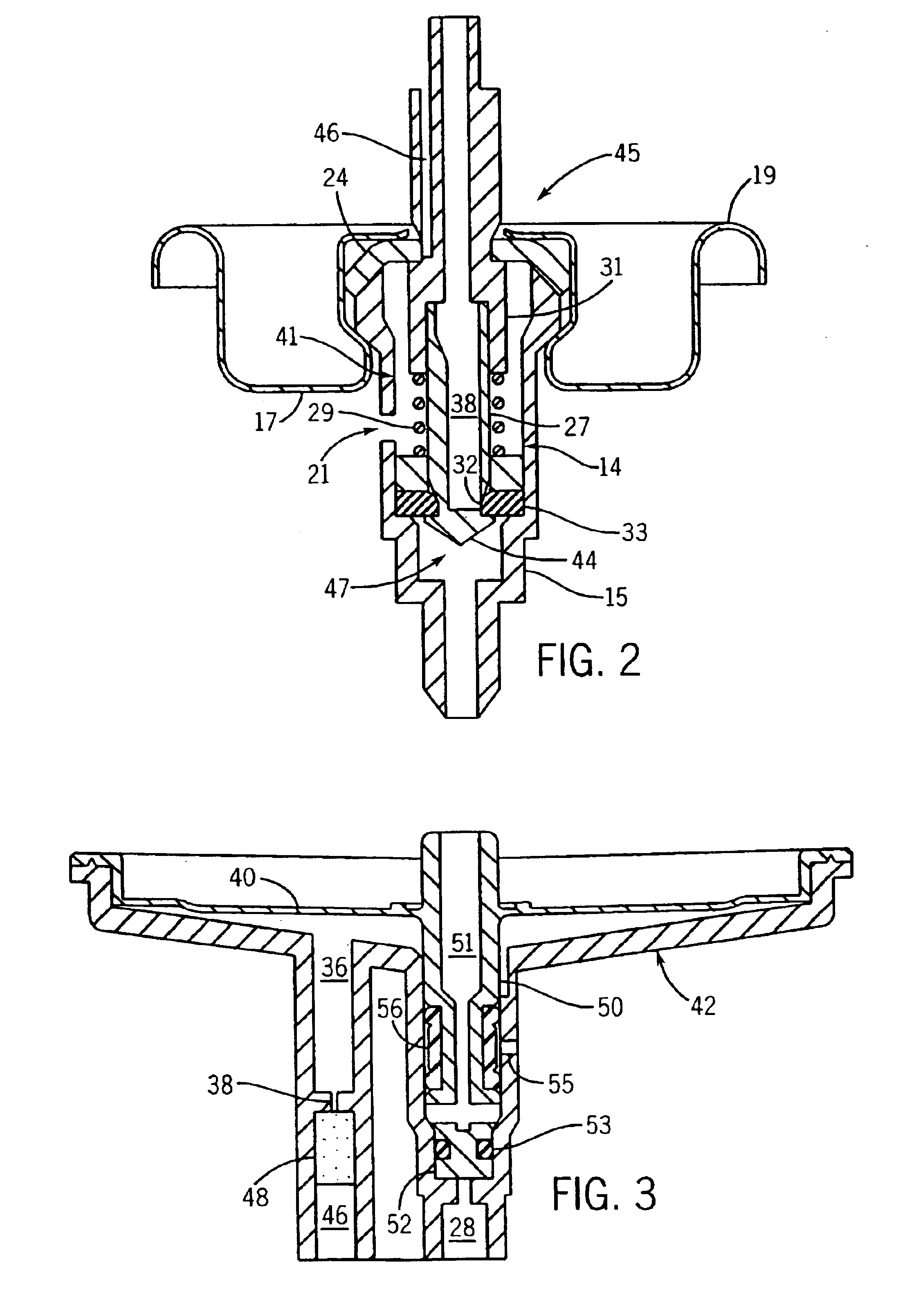Dispensing valve
a technology of dispensing valves and valves, which is applied in the field of aerosol dispensing devices, can solve the problems of only being used, unable to meet the needs of users, and unnecessarily increasing the cost of the dispenser, so as to achieve cleaner and more reliable operation, less likelihood of clogging, and convenient manufacturing and assembly.
- Summary
- Abstract
- Description
- Claims
- Application Information
AI Technical Summary
Benefits of technology
Problems solved by technology
Method used
Image
Examples
Embodiment Construction
Referring initially to FIG. 1, an aerosol can 12 includes a cylindrical wall 11 that is closed at its upper margin by a dome 13. The upper margin of the can wall 11 is joined at a can chime 37. An upwardly open cup 17 is located at the center of the dome 13 and is joined to the dome by a rim 19.
The can 12 includes an axially extending conduit 23 that is centrally disposed therein, and opens into a mixed pressurized chemical (active and gas propellant) at one end (preferably towards the bottom of the can). The upper region 25 of the can interior above the active chemical line contains pressurized gas propellant. The lower region contains a mix of liquid gas and the active chemical. The upper end of conduit 23 receives a tee 15 that interfaces with the interior of dispenser 10, through which the chemical may be expelled.
Dispenser 10 includes a can valve assembly 45 that, in turn, includes a gas propellant valve assembly 41 and an active valve assembly 47. Dispenser 10 permits aerosol ...
PUM
 Login to View More
Login to View More Abstract
Description
Claims
Application Information
 Login to View More
Login to View More - R&D
- Intellectual Property
- Life Sciences
- Materials
- Tech Scout
- Unparalleled Data Quality
- Higher Quality Content
- 60% Fewer Hallucinations
Browse by: Latest US Patents, China's latest patents, Technical Efficacy Thesaurus, Application Domain, Technology Topic, Popular Technical Reports.
© 2025 PatSnap. All rights reserved.Legal|Privacy policy|Modern Slavery Act Transparency Statement|Sitemap|About US| Contact US: help@patsnap.com



